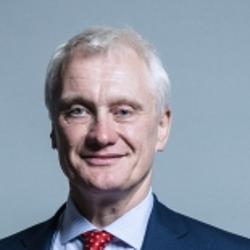Liquefied Natural Gas: Mozambique
(asked on 17th July 2020) - View SourceQuestion to the Department for International Trade:
To ask the Secretary of State for International Trade, what steps her Department is taking to ensure the decision to provide £800,000 in UK Export Finance funding to support of the Mozambique LNG Project will comply with (a) the UK’s commitments made under the 2015 Paris Climate Agreement and (b) the COP26 President's recommendation for states to align finance flows with low carbon, resilient development.
The Project’s Environmental and Social Impact Assessment presents the direct and indirect (Scope 1 and Scope 2) contribution of the Project to Mozambique’s greenhouse gas emissions (GHG) baseline, which is estimated to account for approximately 6 - 10% of Mozambique’s national GHG emissions. This was estimated in accordance with the GHG Protocol: Corporate Accounting & Reporting Standard developed by the World Business Council for Sustainable Development (WBCSD) and the World Resources Institute (WRI). The Project’s Scope 3 emissions are produced by the use of the Project’s LNG. Calculating LNG Scope 3 emissions is highly complex and requires details of when, where, how and how much of the Project’s gas volumes will be used. UK Export Finance (UKEF) made some reasonable assumptions about Scope 3 emissions, that it then took into account in its review of the Project. There is scope, however, for the Project to replace / displace more polluting hydrocarbon sources, such as oil and coal, which would result in lower net emissions than using these energy sources.
UKEF considered climate change as part of its review of the Project including considering the potential lock-in risks from the Project. It is not known for certain whether the Project will displace renewable energy potential or lower carbon solutions. However, for Mozambique, the need for financial resources to support the country’s climate resilience is noteworthy and, as per Mozambique’s own Nationally Determined Contribution (NDC), UKEF considers that the financial outputs of this Project will act as a catalyst towards enabling the country’s climate change plans to be fulfilled, and thus to allow investment in the renewables sector.
The International Energy Agency notes that demand for energy cannot be met for the
foreseeable future (i.e. up to 2040) without oil and gas. Even under a sustainable
development scenario, gas is expected to account for 24% of global primary energy
demand in 2040. The Paris Agreement (Article 4.1) recognises that the peaking of
greenhouse gases will take longer for developing countries, such as Mozambique, and the Project sits within Mozambique’s longer-term plans to establish strong social and
economic stability.
The support provided by UKEF takes the form of direct loans or loan guarantees, rather than equity funding.

